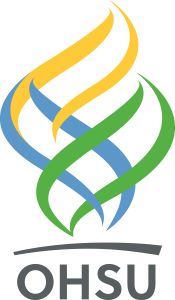Building Community Capacity for Accessible Vaccine Events
Tuesday, September 6, 2022
Communities who have been historically excluded from programs and services are less likely to participate in health promotion activities, unless they are involved in making them happen.1 This highlights the importance of engaging in service with communities, rather than for communities. Some important pieces of this work are ensuring equal access to resources that are appropriate for all different communities being served, as well as representation, which is essential for people to feel safe and comfortable.
The UCEDD in the Institute on Development and Disability at OHSU has been working with the Oregon Health Authority COVID-19 Response and Recovery Unit to develop training materials that complement a vaccine access kit that is being distributed across Oregon. The access kit is available to community partners who are hosting COVID-19 vaccination events. These kits contain basic materials and information to help make the events more accessible to people with disabilities and people who speak languages other than English. Many of the partners who have received kits so far have been working in collaboration with the state’s vaccine equity team to improve culturally responsive vaccine access.
The kit and materials are designed to be used by event organizers for public health events today and in the future beyond the current COVID-19 pandemic. By offering guidance for using the kit in a culturally specific manner, we will be expanding opportunities for hosting accessible vaccine events that reach people with disabilities with intersectional identities in a meaningful way. The educational aspect of the videos and kit materials also function to build the capacity of organizations to be more inclusive in their work overall.
Oregon has had many vaccination events which provided people with resources like food, gift cards, toys and more. However, it’s important to highlight that even when these events provide great support for communities, many of them are still not accessible for people with disabilities, people who speak other languages, or who are from diverse cultures. The kit will help to fill this gap, providing agencies and organizations with tools they can use to support historically underserved communities, making sure they have access to the vaccine in an environment where they feel comfortable and safe.
The videos and accompanying materials can be accessed at the link below. More content will be added this fall. We are excited to see how this toolkit will be implemented and the impact for communities and organizations who use it.
Visit the Accessibility and Public Health webpage: https://www.oregon.gov/oha/PH/Pages/Accessibility.aspx
